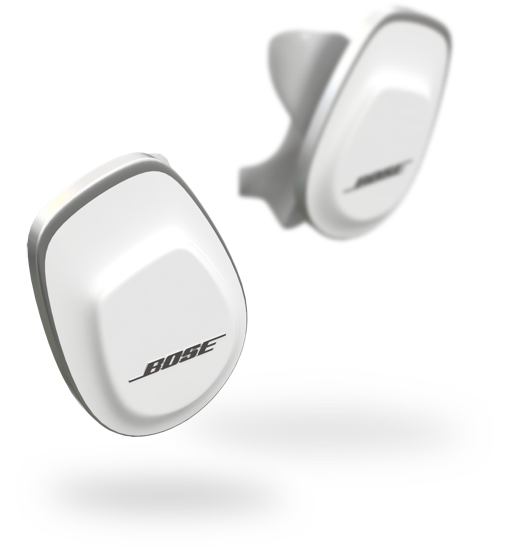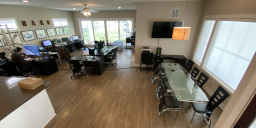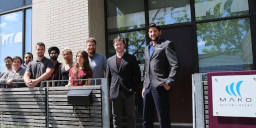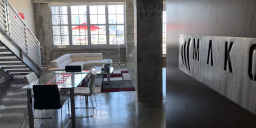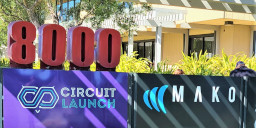Product ideation and design involve completing numerous stages before a physical product is created. One of the most exciting steps in building a new product is getting to the prototyping stage!
Although each stage is important, it is particularly critical to properly prepare for and make the best decisions during the prototyping stage as an inventor or startup to create a successful final product.
Since prototyping is one of the most popular services we offer at our Bay Area industrial design services firm, we’ve gathered some of the best tips our team has to offer on prototyping to help inventors out during this crucial stage of their design process.
Tailor Your Prototype to Your Audience
Preparing to create and reveal a prototype can be nerve-racking. The prototyping stage might require more than one prototype and several trials for each model in order to perfect the design.
It’s important to remember that no matter the image you have in mind for the final outcome and look of your product, prototyping is all about testing its execution and performance in the eyes and hands of your target audience.
Our team at the Bay Area industrial design services firm recommends that you design the initial prototype with the user’s needs and approach heavily in mind, as they will ultimately be the ones to test out your final prototype.
This means making sure that the prototype is simple and easy to use and clearly shows what it is trying to accomplish or solve for your target consumer. In this way, they will be able to physically test your prototype, and you will get more accurate feedback on the performance rather than just how it looks, making it easier to go back and make the requisite adjustments to improve its functionality.

Prime Your Audience
When you release a prototype, it’s important to let your audience know what to expect! Our Bay Area industrial design services firm understands that prototyping is all about testing your product and getting a sense of how your envisioned idea will work in real life. This means the promises you make to your audience will be assessed following your prototype reveal.
Let your audience know what the prototype does, what it solves, and what your audience will see once it is presented. Not only does this provide them with an accurate understanding of what your prototype is supposed to do, but it ensures the expectations of your audience are at an appropriate level that doesn’t set themselves, or yourself, up for disappointment.
Remind them that the prototype is not the final model and will be improved upon. Also, make sure to ask for specific, constructive criticism that allows you to learn what features your product is lacking or what areas could be improved in terms of efficiency or efficacy.

Sketch Out Your Prototype Ideas
From years of collaborating with diverse clients at our Bay Area industrial design services firm, we have learned that before you begin the prototyping stage, it’s important to list all of the attributes, mechanisms, and details you want to see among the different versions of prototypes you plan to make.
Sketching is a great way to clearly get down all your thoughts in a visually organized manner that not only allows you to take a step back and reassess your ideas and expectations but also helps the designer understand the direction you have for your product.
Sometimes the invention ideas we have in our head seem rough and abstract, which is why sketching is a great way to make your ideas more concrete and realistic, thus allowing you to better understand what you want to achieve with your product. Sketching is also the most inexpensive way to visualize an idea, so you can begin exploring different development methods, structures, and purposes for your product.

Prototype Only the Necessities
When creating your product, it’s always best to take things slow and be thorough in order to minimize mistakes and avoid hindering the design process!
As the bright team at our Bay Area industrial design services firm has created thousands of products and worked with a wide range of talented inventors, we understand that reaching the prototyping stage is exciting. However, it should still be approached in a methodological manner. Inventors far too often attempt to complete much more than they can handle at one time.
An effective way inventors can approach prototyping strategically is to include ONLY essential parts for their first prototype to test its functionality and performance. If they want to add details or refine the look of their prototype, it is better to tackle those parts later after they’ve proven and optimized their product’s functional abilities.
Having more than one prototype is also completely normal and actually recommended since it allows you to slowly refine and improve all parts of your product one by one while ensuring nothing is overlooked. Moreover, this method cuts costs by minimizing the number of modifications that have to be made later in the product development process when adjustments are pricier.
Most importantly, it will give you the best chance of creating an exceptional product!
Learn how MAKO Design + Invent is still producing prototypes in accordance with new COVID-19 safety measures here!

If you have a great new invention idea and you’d like to learn more about this process, get in touch with MAKO today and visit our website to find out more. Or feel free to give us a call at 1-888-806-MAKO, and we can set you up on a call with our product analyst!
About: MAKO Design + Invent is the original firm providing world-class consumer product development services tailored to startups, small manufacturers, and inventors. Simply put, we are the leading one-stop-shop for developing your physical product from idea to store shelves, all in a high-quality, cost-effective, and timely manner. We operate as one powerhouse 30-person product design team spread across 4 offices to serve you (Austin, Miami, San Francisco, & Toronto). We have full-stack in-house industrial design, mechanical engineering, electrical engineering, patent referral, prototyping, and manufacturing services. To assist our startup and inventor clients, in addition to above, we help with business strategy, product strategy, marketing, and sales/distribution for all consumer product categories. Also, our founder Kevin Mako hosts The Product Startup Podcast, the industry's leading hardware podcast. Check it out for tips, interviews, and best practices for hardware startups, inventors, and product developers. Click HERE to learn more about MAKO Design + Invent!
